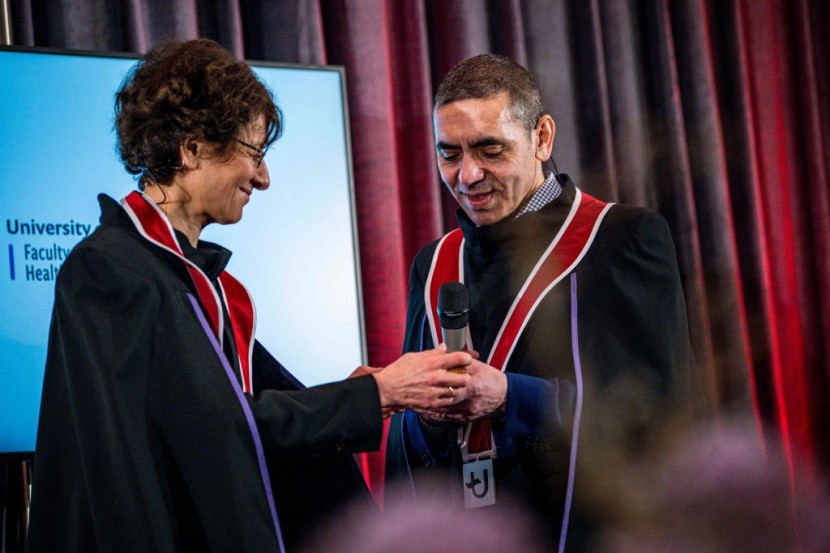
The couple from BioNTech who was part of the team that partnered with Pfizer for a coronavirus shot say that a cancer vaccine could be available by 2030.
The husband and wife duo, professors Ugur Sahin and Ozlem Tureci, co-founded the German company in 2008. Since then, they have explored new technology involving messenger RNA (mRNA), to treat cancer in patients.
Cancer Vaccine
When the health crisis spread through the world, the two worked together with Pfizer to use the same method to create a COVID-19 vaccine to protect people from the virus. Now, the medical experts are hopeful that their technology and expertise can lead to new treatments for melanoma, bowel cancer, and other types of tumors.
BioNTech has several trials currently in progress, including one where patients are given a personalized vaccine that aims to force their immune system to attack their disease. The breakthrough mRNA technology that is being used works by sending an instruction or blueprint to cells to produce an antigen or protein, as per BBC.
With the coronavirus, the antigen is part of the spike protein of the virus and in cancer, it would be a marker on the surface of tumor cells. The process teaches the immune system to recognize and target affected cells for destruction.
During an interview on Sunday with Laura Kuenssberg, Prof. Tureci said that mRNA acts as a blueprint and allows a person to tell their body to produce the drug or the vaccine. When mRNA is used as a vaccine, it is a blueprint for the "wanted poster" of the enemy, which in this case, is cancer antigens that distinguish cancer cells from normal cells.
According to Yahoo News, Tureci added that they felt that a cure for cancer, or to changing cancer patients' lives, is well within their grasp. Sahin noted that a potential vaccine for cancer could be made widely available in just eight years.
Individualized Vaccine Approach
The couple's goal is to use the individualized vaccine approach to ensure that directly after surgery, they can induce a patient's immune response. This is so that the T-cells in the body of the patient can screen the body for remaining tumor cells and ideally eliminate them.
Tureci added that their experiences working in cancer wards as young physicians drove them toward their work in cancer research after being frustrated at being unable to offer treatment to oncology patients.
They said that the work was the usurper for the COVID-19 vaccine's development, which in turn, became the catalyst for their cancer research. The couple was asked if there was any chance that the cancer vaccine they are developing would not work.
Tureci answered by saying that everything they have learned about the immune system and what they have achieved with a cancer vaccine shows that, in principle, they can direct the killer T-cells.
The medical experts said that it remains to be seen how doctors would utilize other types of medical interventions parallel with the cancer vaccine and what else needs to be changed to ensure that a patient is able to fight off the disease and be cured, Insider reported.
Related Article: Half of COVID-19 Patients Have Not Recovered 6 to 18 Months After Infection, Study Shows
© 2026 HNGN, All rights reserved. Do not reproduce without permission.








